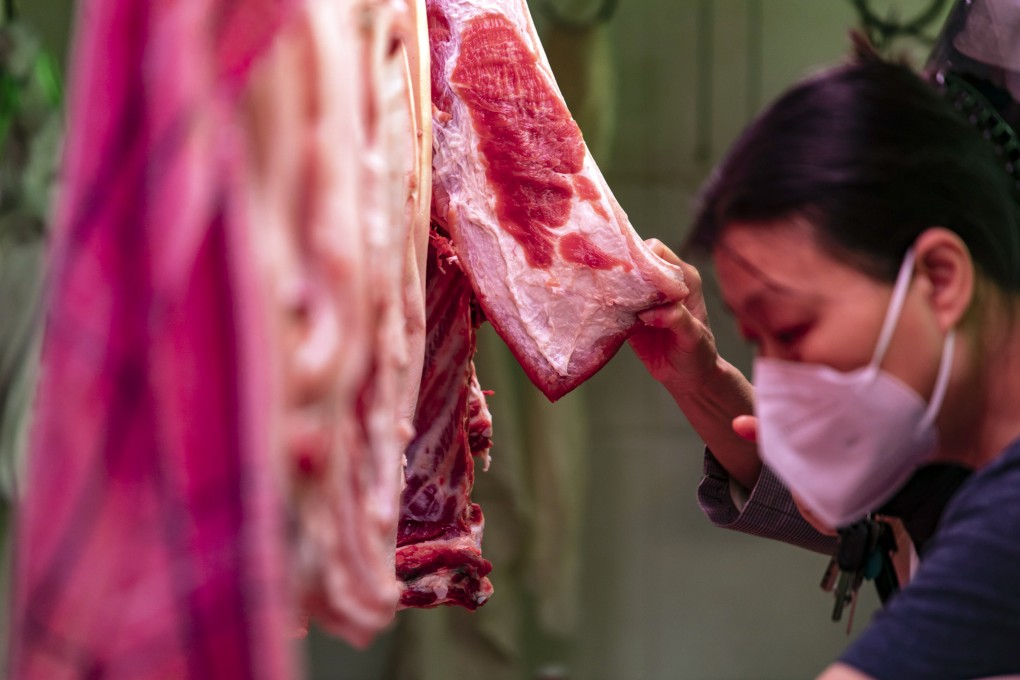Advertisement
Chinese pork stocks including WH Group recede as nation’s top planning body cracks down on misconduct, ‘vile speculation’ stoking hog prices
- The NDRC said it ‘will crack down on misconduct such as spreading information on price increases, hoarding, inflating prices and vile speculation.’
- The move may prompt traders to reassess their bets that China’s pork prices are at the start of a new upward cycle after ending a year-long decline caused by excessive supply
Reading Time:2 minutes
Why you can trust SCMP

Stock market bets on gains in China’s pork prices receded after the nation’s top planning body warned against speculative activity that could further stoke a 30 per cent increase in hog prices this year.
Advertisement
Shares of Muyuan Foods, the nation’s biggest pig-breeder, dropped 3.6 per cent to 61.19 yuan (US$9.13) on Wednesday in Shenzhen, snapping a three-day gain, while pork processing giant WH Group slumped 4 per cent to HK$5.81 in Hong Kong, retreating from a level close to a nine-month high.
Trading in pork stocks has started to unravel after the National Development and Reform Commission (NDRC) said on Tuesday it would collaborate with the Dalian Commodity Exchange to rein in the excessive gains in hog prices this year. A day earlier, the planning body said it would take a variety of measures including releasing pork reserves to curb the rally.
“Keeping the hog and pork prices within a reasonable range is of significance in promoting the long-term healthy development of the industry and maintaining the stability of general prices,” the NDRC’s statement said. The commission “will crack down on misconduct such as spreading information on price increases, hoarding, inflating prices and vile speculation.”
The move will probably prompt traders to reassess their bets that China’s pork prices are at the start of a new upward cycle after ending a year-long decline caused by excessive supply. Shares of Muyuan and WH Group have climbed at least 15 per cent this year, while the benchmark indices in the mainland and Hong Kong are still in the red.
Advertisement

Advertisement
